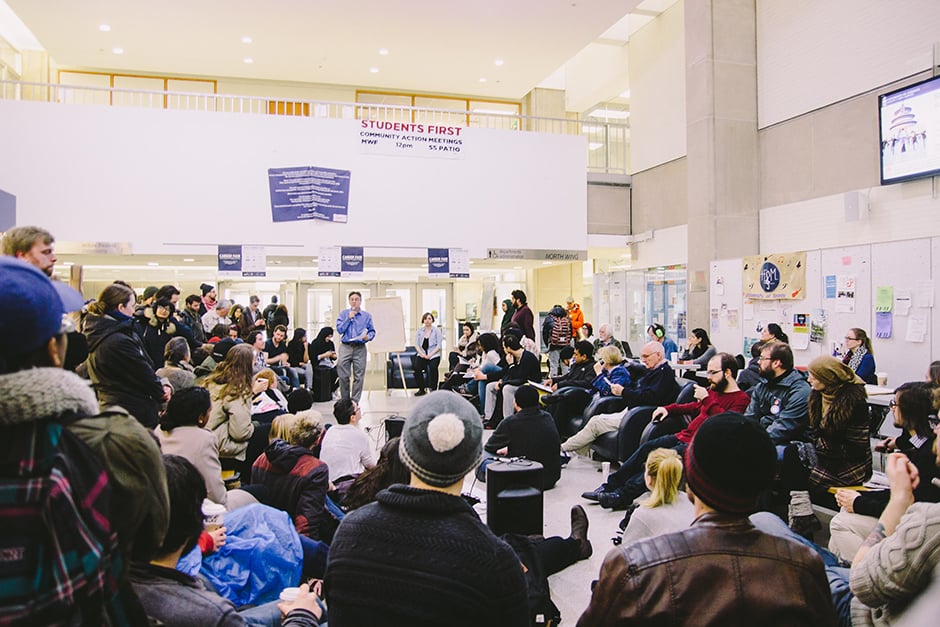With a major labour disruption plaguing the university for the past four weeks, students in affected classes have not been receiving feedback on their work in a timely manner. In fact, many classes across the university’s three campuses have been cancelled — leaving students without instruction and effectively in the dark about the material they were expecting to be taught.
In response, the university has implemented an academic continuity policy in an effort to minimize the stress that the labour disruption has had on students. The policy extends the deadline for students to select to credit, no-credit (CR/NCR) a course, or withdraw late (LWD) from a course. Each faculty and campus has its own specific dates.
On its face, it seems that taking a course on a pass or fail basis — or dropping a course altogether after seeing your final grade — is a great solution for students who have been affected by the labour disruption.
However, it is important to remember the underlying issue here: that the quality of our education and the value of our degrees are being compromised. Where will our missed lectures, tutorials, and laboratory times go? Should students be satisfied with not receiving the allocated time that was set out in the course syllabi? More particularly, should students be satisfied with the undermining of the rigour they expect from their education?
The consequences of a lack of concrete grades being assigned to students may cause problems in the future, and the repercussions of choosing an amended CR/NCR or LWD option, as a student, is definitely worth investigating. How will departments handle those students who decide to apply for competitive subject POSts for the next academic year — will students have to reapply in subsequent years? Will there be standardized tests? What about those students who are graduating and need their grades for further studies or future employment?
The solution? It seems that the academic continuity policy varies across U of T campuses, with each implementing their own, sometimes quite significant, modifications. In an ideal situation, however, an entire faculty or campus should not be making the decision for all the courses being taught within it.
More so, the departments should be assessing the disruption of each class on an individual basis and be making decisions as to what procedures to implement case-by-case.
Currently, it seems that nobody from the Faculty of Arts & Science will be failing a class this semester — perhaps an unprecedented event in the history of the university.
Dmitry Polyanskyy is a second-year student studying math and computer science.


